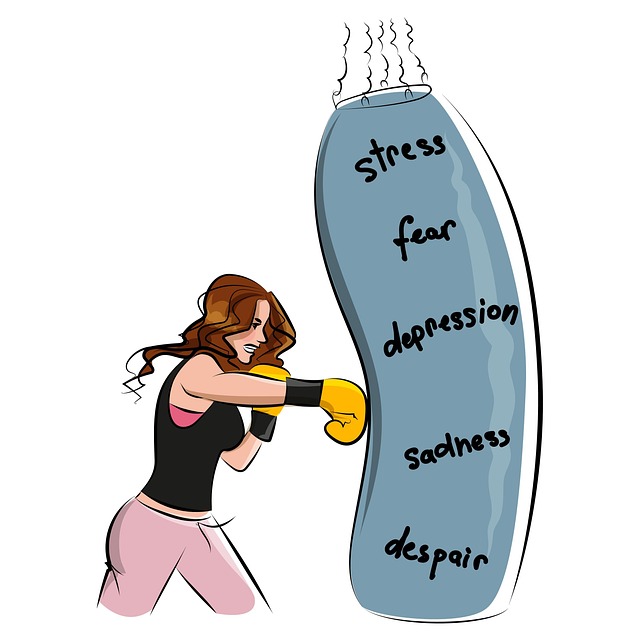Mental wellness journaling, inspired by Parker Child Abuse Therapy (PCAT), is a safe, private therapeutic practice encouraging self-awareness and emotional regulation through creative expression. Regular journaling enhances mindfulness, emotional intelligence, and stress reduction, fostering personal growth and better mental health management. Starting with 10 minutes daily in a quiet space, individuals can use prompts to explore thoughts and emotions, building resilience and coping skills while managing stress through PCAT-guided exercises.
“Unwind your mind and embrace the transformative power of mental wellness journaling with our comprehensive guide. This practice, inspired by the therapeutic techniques of Parker Child Abuse Therapy, offers a safe space for reflection and healing.
In this article, we’ll explore how journaling can enhance mental well-being, delve into the unique perspective of Parker Child Abuse Therapy, and provide practical tips to help you begin and sustain a meaningful journaling routine.”
- Understanding Mental Wellness Journaling: A Therapeutic Approach
- The Parker Child Abuse Therapy Perspective
- Practical Tips for Starting and Maintaining a Journaling Practice
Understanding Mental Wellness Journaling: A Therapeutic Approach

Mental wellness journaling is a powerful therapeutic approach that encourages individuals to explore and express their thoughts, emotions, and experiences in a safe and private manner. It serves as an effective tool for self-reflection and personal growth, allowing people to gain valuable insights into their mental health. By jotting down their daily thoughts, feelings, and even challenges, individuals can develop a deeper understanding of themselves and learn coping strategies to manage stress and anxiety.
This practice draws inspiration from various therapeutic modalities, such as Parker Child Abuse Therapy, which emphasizes the importance of self-awareness and emotional regulation. It provides an opportunity for people to externalize their inner world, making it easier to identify patterns, triggers, and potential barriers to well-being. Through regular journaling, one can cultivate mindfulness, enhance emotional intelligence, and develop effective stress reduction methods like Mindfulness Meditation.
The Parker Child Abuse Therapy Perspective

The Parker Child Abuse Therapy (PCAT) perspective emphasizes the power of self-reflection and expression as vital tools for healing and mental wellness. This therapy model encourages individuals, especially children, to engage in creative outlets such as writing as a means to process traumatic experiences and emotions. By incorporating Mental Wellness Journaling Exercise Guidance, PCAT helps clients develop effective communication strategies to articulate their feelings and understand themselves better.
Through this approach, the focus shifts from the trauma itself to the individual’s ability to cope and grow. It fosters mental health awareness by providing a safe space for self-exploration. The process involves guiding individuals to write about their emotions, thoughts, and experiences in a structured yet personal manner. This practice not only enhances emotional intelligence but also serves as a powerful tool for resilience-building, offering an alternative way to navigate and manage complex feelings, particularly those associated with abuse or trauma.
Practical Tips for Starting and Maintaining a Journaling Practice

Starting a journaling practice can be as simple as setting aside 10 minutes each day to reflect and write. Choose a quiet space where you feel comfortable and safe, especially if you’re using this tool for self-healing and coping skills development, which may involve exploring sensitive topics like those discussed in Parker Child Abuse Therapy. Consider what prompts or questions resonate with you; they could be as basic as “How was my day?” or more specific, like “What challenges did I face today and how can I overcome them?”. Consistency is key; aim for a regular journaling routine to establish a connection with your thoughts and emotions.
To maintain momentum, make it an enjoyable experience. Decorate the pages or use colorful pens to add visual appeal. Reflect on your progress over time, as this practice supports stress management and reinforces the mind over matter principles you’re cultivating. Remember, there’s no right or wrong way to journal—it’s a personal journey. Embrace the process, be kind to yourself, and allow your thoughts to flow freely.
Mental wellness journaling is a powerful tool, as evidenced by the therapeutic benefits of Parker Child Abuse Therapy. By embracing this practice, individuals can navigate their emotions, gain insights, and foster resilience. With the right guidance and practical tips, anyone can start and maintain a journaling routine, making it an accessible and effective way to support mental health and overall well-being.














